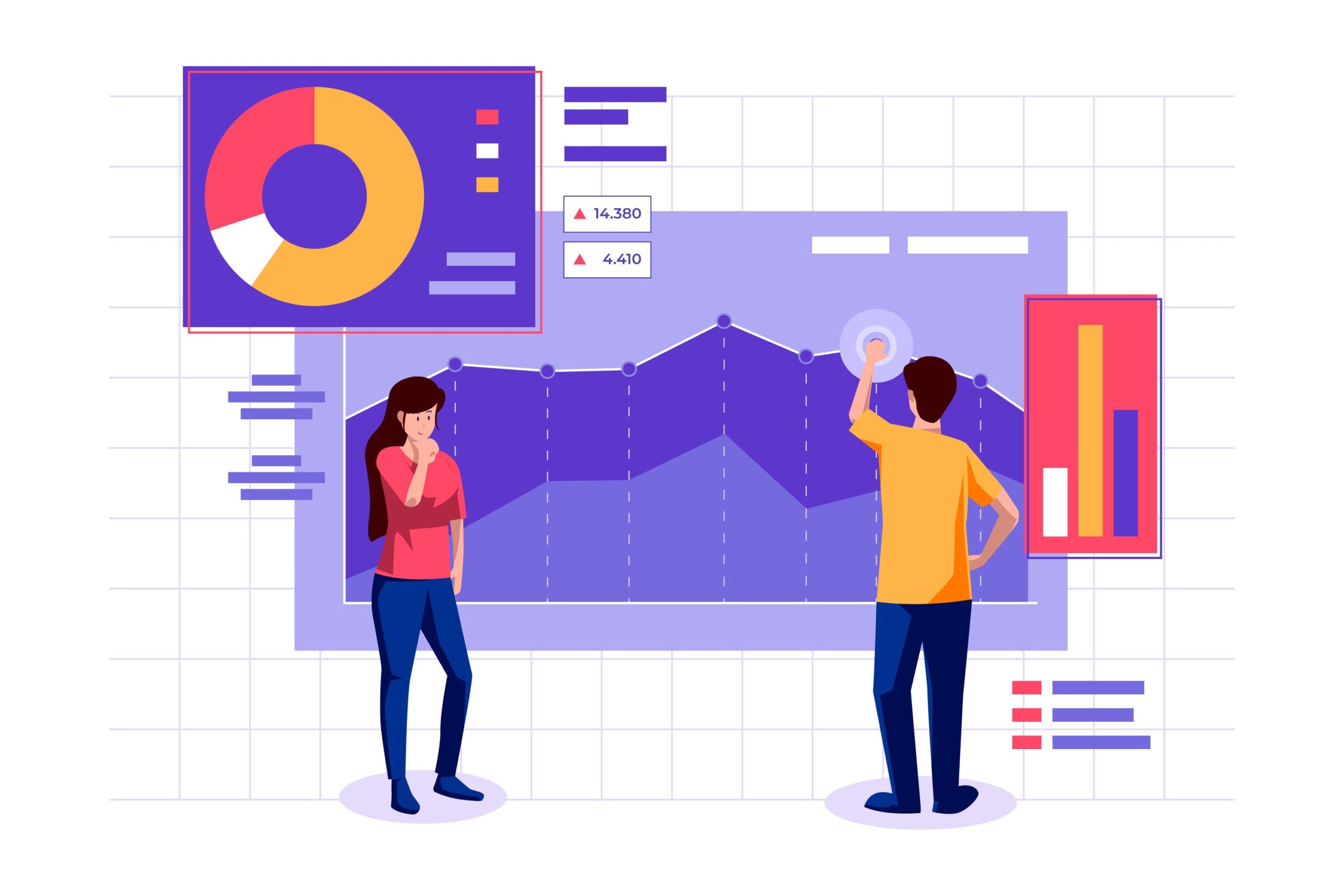Learn how to use Facebook Analytics to measure the success of your marketing efforts and improve your strategy. This guide covers everything from setting up Facebook Analytics to analyzing data and understanding metrics.
Are you tired of guessing what your Facebook audience wants?
Facebook Analytics is a powerful tool that provides businesses and marketers with insights into their audience’s behavior, demographics, and engagement on their Facebook pages and websites.
In this blog, we’ll explore the various benefits of Facebook Analytics, including how to set it up, navigate its interface, and use its data to make informed decisions.
Contents
Introduction to Facebook Analytics
Facebook is one of the most popular social media platforms used worldwide, with over 2 billion daily active users as of 2023. As a business, it is essential to have a Facebook presence and to leverage the platform to market your brand effectively. However, it is not enough to have a Facebook page; tracking performance and analyzing data are necessary to ensure that your marketing strategy is on track and meets your branding objectives. This is where Facebook’s analytics come into play.
Facebook Analytics is a platform that enables businesses to track and analyze user engagement with their Facebook pages, events, campaigns, and websites. With Facebook Analytics. Businesses can monitor important metrics such as page views, engagement per post, and conversion rates to better understand their audiences and track the success of their content.
Benefits of Facebook Analytics
1- One of the most significant advantages that Facebook analytics offers is its ability to analyze the demographics of your audience. By tracking the number of likes, shares, and comments on your Facebook page’s content, you can analyze which age groups, genders, and locations are the most interested in your brand. Knowing your audience’s demographic is crucial, as it enables you to create content that resonates with your target market and increases user engagement.
2- Facebook Analytics also tracks specific metrics such as time spent on a page, referring sources, bounce rate, and conversion rate. These metrics help you understand how users interact with your Facebook page, website, or marketing campaigns. By monitoring these metrics, you can identify which products, services, or landing pages are the most successful and understand how your marketing efforts are impacting your brand’s overall success.
3- Facebook Analytics also offers a range of additional features that enable marketers to dive deeper into their Facebook page’s performance. These features include audience insights, which provide detailed audience demographics, interests, and behaviors, and custom funnels, which allow you to analyze users’ actions as they navigate your website.
Setting up Facebook Analytics
Setting up analytics can be a daunting task, but with the right approach, it can be done easily. Here, we will discuss the steps involved in setting up Facebook analytics.
1- Create a Facebook Business Manager Account: The first step is to create a Facebook Business Manager Account. This account will give you access to Facebook analytics, as well as other tools and features that will help you manage your Facebook page. To create a Business Manager Account, go to business.facebook.com and click on “Create Account”.
2- Add your Facebook Page: Once your Business Manager Account is set up, the next step is to add your Facebook page to it. This will give you access to all the data related to your page. To add your page, click on the “Add New” button and select “Add Page” from the dropdown menu. Follow the prompts to add your page to your Business Manager Account.
3- Install Facebook Pixel: Facebook Pixel is a tracking code that will help you monitor the traffic coming to your website from your Facebook page. To install Facebook Pixel, go to Facebook Ads Manager, and click on “Pixels”, located under the “Measure & Report” section. Click on “Create a Pixel” and follow the prompts to install the pixel on your website.
4- Configure your analytics settings: After successfully installing the Facebook pixel, you need to configure your analytics settings. This can be done by going to the “Analytics” section of your Business Manager Account. Here, you can set up your attribution window, which will determine the length of time for which Facebook will attribute conversions to your ads.
5- Monitor your analytics: Once your analytics are set up, you can start monitoring your data. You can view your analytics under the “Analytics” tab within your Business Manager Account.
Here, you can see data relating to your page, your ads, and your audience. You can use this data to optimize your Facebook strategy and make informed decisions about your Facebook marketing initiatives.
Understanding Facebook Analytics Metrics
Facebook analytics is a powerful tool that can help businesses understand their social media performance. With its vast array of metrics, it’s easy to feel overwhelmed if you’re just starting out. However, there are a few key metrics that should be at the top of your list to truly understand your audience and how they interact with your content. Reach and engagement are two vital metrics that will enable you to track how many people have seen your posts and how engaged they are with them. Understanding these metrics allows businesses to tailor their content to suit their audience’s preferences as well as determine what resonates with them the most.
Analyzing Facebook Analytics Data
If you’re using Facebook for business purposes, then analyzing the analytics data can offer valuable insights into your audience and marketing performance. It’s not just about looking at vanity metrics like page likes or post engagement, you need to dig deeper into demographics, location, behavior, and interests. Review your most successful posts to replicate what resonates with your audience, and identify underperforming content to refine future campaigns. Utilize this information to create targeted ads that reach the right people at the right time with the right message. Facebook Insights also allows you to monitor and compare your competitors’ activity on their pages so that you can keep an eye on market trends and potential opportunities.
Using Facebook Analytic to Improve Your Strategy
If you’re looking to improve your social media strategy, Facebook Analytics is an invaluable tool. With this platform, you can gain a detailed and holistic understanding of your audience’s behavior, preferences, and interests. From demographics like age and location to their browsing history on your page, this information helps you create targeted content that resonates with your followers. You can also track engagement metrics like likes, comments, shares, or click-through rates, which help determine the effectiveness of your posts. By learning what works and what doesn’t work with your audience through Facebook Analytics, you can adjust your social media strategies for maximum engagement and growth. All in all, it’s clear that the insights gleaned from Facebook Analytics are key to optimizing any marketing campaign.
FAQs
Q- What is Facebook Analytics?
Ans- Facebook Analytics is a free tool provided by Facebook that helps businesses and marketers analyze the performance of their Facebook Pages, ad campaigns, and website traffic. It provides insights into how people interact with your Facebook content, including demographics, behaviors, and interests.
Q- How do I access Facebook Analytics?
Ans- You can access Facebook Analytics by going to your Facebook Page and clicking on the “Insights” tab at the top of the page. From there, you can click on the “Analytics” tab to view more detailed data.
Q- What kind of data can I see in Facebook Analytics?
Ans- Facebook Analytics provides a variety of data related to your Facebook Page and ad campaigns, including engagement metrics like likes, comments, and shares, as well as demographic information like age, gender, and location. You can also track website traffic and conversions from your Facebook ads.
Q- Is Facebook Analytics free to use?
Ans- Yes, Facebook Analytics is free to use for businesses and marketers with a Facebook account.
Q- Can I use Facebook Analytics to track user behavior on my website or app?
Ans- Yes, you can use Facebook Analytics to track user behavior on your website or app by adding a tracking pixel to your site or integrating the Facebook SDK into your app.
Q- What are some best practices for using Facebook Analytics?
Ans- Some best practices for using Facebook Analytics include setting clear goals, tracking the right metrics, experimenting with different strategies, and regularly reviewing and analyzing your data.


